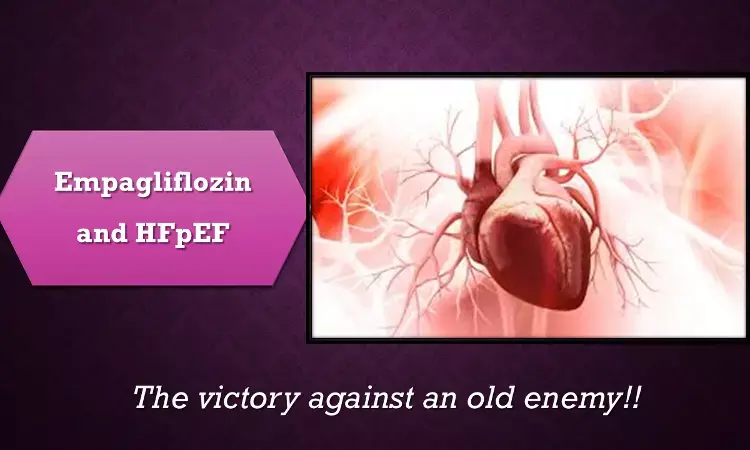- Home
- Medical news & Guidelines
- Anesthesiology
- Cardiology and CTVS
- Critical Care
- Dentistry
- Dermatology
- Diabetes and Endocrinology
- ENT
- Gastroenterology
- Medicine
- Nephrology
- Neurology
- Obstretics-Gynaecology
- Oncology
- Ophthalmology
- Orthopaedics
- Pediatrics-Neonatology
- Psychiatry
- Pulmonology
- Radiology
- Surgery
- Urology
- Laboratory Medicine
- Diet
- Nursing
- Paramedical
- Physiotherapy
- Health news
- Fact Check
- Bone Health Fact Check
- Brain Health Fact Check
- Cancer Related Fact Check
- Child Care Fact Check
- Dental and oral health fact check
- Diabetes and metabolic health fact check
- Diet and Nutrition Fact Check
- Eye and ENT Care Fact Check
- Fitness fact check
- Gut health fact check
- Heart health fact check
- Kidney health fact check
- Medical education fact check
- Men's health fact check
- Respiratory fact check
- Skin and hair care fact check
- Vaccine and Immunization fact check
- Women's health fact check
- AYUSH
- State News
- Andaman and Nicobar Islands
- Andhra Pradesh
- Arunachal Pradesh
- Assam
- Bihar
- Chandigarh
- Chattisgarh
- Dadra and Nagar Haveli
- Daman and Diu
- Delhi
- Goa
- Gujarat
- Haryana
- Himachal Pradesh
- Jammu & Kashmir
- Jharkhand
- Karnataka
- Kerala
- Ladakh
- Lakshadweep
- Madhya Pradesh
- Maharashtra
- Manipur
- Meghalaya
- Mizoram
- Nagaland
- Odisha
- Puducherry
- Punjab
- Rajasthan
- Sikkim
- Tamil Nadu
- Telangana
- Tripura
- Uttar Pradesh
- Uttrakhand
- West Bengal
- Medical Education
- Industry
Empagliflozin reduces hospitalization and mortality in HF with preserved EF, NEJM.

Although pharmacologic therapies that improve clinical outcomes have been identified for use in patients with heart failure and a reduced ejection fraction, there has been far less progress in treatment for those with a preserved ejection fraction. The results of the EMPEROR-Preserved trial now published in NEJM have shown significant reduction in the combined risk of cardiovascular death or hospitalization with empagliflozin in patients with heart failure and a preserved ejection fraction (HFpEF), regardless of the presence or absence of diabetes.
SGLT2 inhibitors empagliflozin and dapagliflozin have been shown to reduce the risk of hospitalization for heart failure and cardiovascular death in patients with chronic heart failure and a reduced ejection fraction. However, prospective, clinical trials of SGLT inhibitors in patients with chronic heart failure and a preserved ejection fraction are need of the hour.
The EMPEROR-Preserved trial enrolled 5988 patients with heart failure and an ejection fraction of more than 40%; most patients (82%) had New York Heart Association class II heart failure.
Patients were randomly assigned to receive either empagliflozin at a dose of 10 mg per day or placebo and were followed for a median of 26.2 months. The primary outcome was a composite of cardiovascular death or hospitalization for worsening heart failure. The trial had following major results:
1. The risk of cardiovascular death or hospitalization for worsening heart failure was lower in the empagliflozin group than in the placebo group by 21%.
2. This effect was mainly related to a 29% lower risk of hospitalization for heart failure in the empagliflozin group.
3. A benefit of empagliflozin was also seen with respect to the secondary outcome of the total number of hospitalizations for heart failure.
4. There was a nonsignificant 9% lower risk of death from cardiovascular causes in the empagliflozin group than in the placebo group.
5. The benefit of empagliflozin with respect to the primary outcome was independent of diabetes status.
Although the effect on mortality is not very robust but Mark H. Drazner, M.D. mentions in an accompanying editorial that "Nevertheless, it will be interesting to see whether dapagliflozin reduces cardiovascular mortality in the DELIVER trial in patients with a preserved ejection fraction such that the results of the DELIVER and EMPEROR-Preserved trials would mirror the pattern of results of the DAPA-HF and EMPEROR-Reduced trials in patients with a reduced ejection fraction".
The EMPEROR-Preserved trial is the first phase 3 clinical trial that exclusively enrolled patients with heart failure and an ejection fraction of more than 40% to meet its primary outcome, a result that represents a major win against a medical condition that had previously proved formidable. The DELIVER trial may confirm the benefits of SGLT2 inhibition in patients with an ejection fraction of more than 40%. Ultimately, the EMPEROR-Preserved trial should contribute to a change in clinical practice, given the paucity of therapeutic options available for patients with heart failure and a preserved ejection fraction.
Source: NEJM:
1. DOI: 10.1056/NEJMoa2107038
2. DOI: 10.1056/NEJMe2113008
MBBS, MD , DM Cardiology
Dr Abhimanyu Uppal completed his M. B. B. S and M. D. in internal medicine from the SMS Medical College in Jaipur. He got selected for D. M. Cardiology course in the prestigious G. B. Pant Institute, New Delhi in 2017. After completing his D. M. Degree he continues to work as Post DM senior resident in G. B. pant hospital. He is actively involved in various research activities of the department and has assisted and performed a multitude of cardiac procedures under the guidance of esteemed faculty of this Institute. He can be contacted at editorial@medicaldialogues.in.
Dr Kamal Kant Kohli-MBBS, DTCD- a chest specialist with more than 30 years of practice and a flair for writing clinical articles, Dr Kamal Kant Kohli joined Medical Dialogues as a Chief Editor of Medical News. Besides writing articles, as an editor, he proofreads and verifies all the medical content published on Medical Dialogues including those coming from journals, studies,medical conferences,guidelines etc. Email: drkohli@medicaldialogues.in. Contact no. 011-43720751


